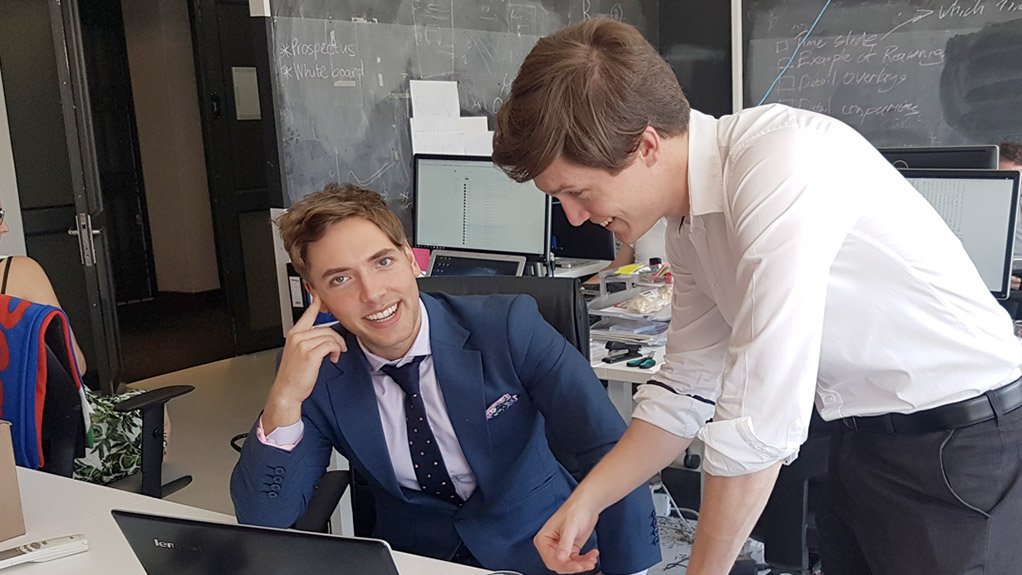Engineering sector held back by lack of entrepreneurial skills
This article has been supplied as a media statement and is not written by Creamer Media. It may be available only for a limited time on this website.
By Daniel Schwartzkopff, co-founder: DataProphet
South Africa’s engineering sector is being held back by universities’ inability to teach entrepreneurial skills and breed a new generation of innovators and business leaders.
Instead, we are training our graduates to fill available positions within large companies, which has no impact on improving our economic prospects. If all we are cultivating at a tertiary level is more employees, where will the rapid economic growth and job creation our country so sorely needs come from?
SA’s struggling engineering sector
According to the Engineering Council of South Africa, there are currently around 17 000 registered professional engineers in the country. In the 2016 Manpower Talent Shortage Survey, engineering positions were listed as the fourth most difficult to fill.
Speaking on the talent shortage, Manpower Group's Executive Vice President of Global Strategy and Talent at the time, Mara Swan, said: "Employability depends less on what you already know and more on how well you can learn, apply, and adapt."
Without a solid grounding in business skills and a healthy amount of entrepreneurial flair, South Africa’s engineers will forever be job-seekers and employees, instead of becoming successful founders and leaders such as Jeff Bezos (Amazon) or Jensen Huang (Nvidia) who both come from an engineering background.
The skills disconnect
Part of the reason for the disconnect between tertiary education and real-world business requirements is that universities are still working off an antiquated understanding of the world of work. A generation ago, it was perfectly feasible to earn a degree, find a job at a reputable company, and build a successful career there until retirement. This notion is dead.
Today's companies have no guarantee they - or even their industries - will still exist in 10 or 20 years’ time. Our likelihood of building successful careers now mostly depends on our ability to learn new skills and build companies, products and services that meet today and tomorrow’s requirements.
This shouldn’t be new information: a 2013 survey by financial services company PPS revealed that 43% of engineers already believed engineering qualifications offered by local tertiary institutions were inadequate. Yet little has changed since then.
Building a culture of innovation
Most major innovation today comes from small, young companies who can move quickly and take advantage of emerging opportunities. We have great talent in South Africa, but little innovation. People are actively discouraged from pursuing entrepreneurship by both society and the way universities teach their students. The focus is still squarely on securing a job at a large firm. And yet, the SME sector is Africa’s only hope of generating significant new employment opportunities and distributing wealth more equitably.
Many engineering faculties receive most of their income from paid industry research and grants - student fees make up only a small portion of their total income. Industry is thus essentially able to dictate the syllabus, as the focus is to prepare the students for employment within their companies.
It is contrary to industry self-interest to inspire or instil any sort of innovative culture or teach graduates skills that would enable them to start their own businesses, as they are heavily invested in procuring the best young talent.
We have the talent, but not the attitude (yet)
Students should be exposed to positive role models and alumni in engineering who have built their own successful businesses. In the US, the cultural dynamic revolves around initiative, innovation, and a self-starter approach. Great self-made business leaders are celebrated as rock stars: people like Elon Musk, Mark Zuckerberg and Bill Gates inspire entirely new generations of entrepreneurs. Failure is accepted as part of the innovation process, and not ridiculed.
In South Africa, even amongst those who have the luxury of being able to try and fail, it is not considered an option for a graduate to build something of their own. I have spent considerable time in Silicon Valley and there is no observable difference in the quality of our talent - so the problem lies squarely in our collective attitude and the way we educate.
South Africa needs a sudden and sustained change in approach to how we equip our graduates. The country cannot afford to sit with swelling numbers of people all vying for a stagnant pool of jobs. To unlock our economic and innovation potential, we need to start thinking like innovators. The engineering field seems a great place to start.
Comments
Press Office
Announcements
What's On
Subscribe to improve your user experience...
Option 1 (equivalent of R125 a month):
Receive a weekly copy of Creamer Media's Engineering News & Mining Weekly magazine
(print copy for those in South Africa and e-magazine for those outside of South Africa)
Receive daily email newsletters
Access to full search results
Access archive of magazine back copies
Access to Projects in Progress
Access to ONE Research Report of your choice in PDF format
Option 2 (equivalent of R375 a month):
All benefits from Option 1
PLUS
Access to Creamer Media's Research Channel Africa for ALL Research Reports, in PDF format, on various industrial and mining sectors
including Electricity; Water; Energy Transition; Hydrogen; Roads, Rail and Ports; Coal; Gold; Platinum; Battery Metals; etc.
Already a subscriber?
Forgotten your password?
Receive weekly copy of Creamer Media's Engineering News & Mining Weekly magazine (print copy for those in South Africa and e-magazine for those outside of South Africa)
➕
Recieve daily email newsletters
➕
Access to full search results
➕
Access archive of magazine back copies
➕
Access to Projects in Progress
➕
Access to ONE Research Report of your choice in PDF format
RESEARCH CHANNEL AFRICA
R4500 (equivalent of R375 a month)
SUBSCRIBEAll benefits from Option 1
➕
Access to Creamer Media's Research Channel Africa for ALL Research Reports on various industrial and mining sectors, in PDF format, including on:
Electricity
➕
Water
➕
Energy Transition
➕
Hydrogen
➕
Roads, Rail and Ports
➕
Coal
➕
Gold
➕
Platinum
➕
Battery Metals
➕
etc.
Receive all benefits from Option 1 or Option 2 delivered to numerous people at your company
➕
Multiple User names and Passwords for simultaneous log-ins
➕
Intranet integration access to all in your organisation























